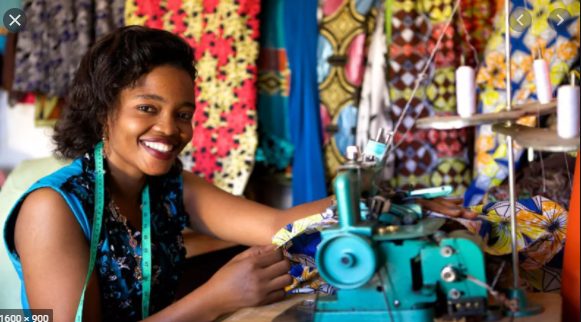The African Union Strategy for Gender Equality and Women’s Empowerment (GEWE) maintains that when women are fully empowered in all spheres and have rights to own and manage businesses, they will contribute significantly to promoting innovation and entrepreneurship initiatives.
Studies have shown that Africa’s informal sector accounts for 85% of the continent’s total economic activity with women accounting for 90% of the informal sector’s labour force.
With the commencement of trading under the African Continental Free Trade Area (AfCFTA), the stakes are high to expand business prospects for women in order to unlock the potential for African women to grow their business from micro to macro enterprises.
It is for these aforementioned reasons why ECOWAS teamed up with the United Nations Development Programme (UNDP) to deliver a capacity building programme themed: “Maximising Opportunities in AfCFTA for Women SMEs” since they play a critical role in African economies.
Silver Ojakol, Chief of Staff, AfCFTA Secretariat, noted that the AfCFTA agreement is one of the best instruments that has been crafted for the African continent since political independence. “The agreement ushers in a period of single trade regime in the continent and a single investment area. This creates predictability in the investment and trade environment”.
Mr. Ojakol noted that micro, small and medium enterprises predominate cross-border trade in African countries and up to 40% of cross border trade is by this segment of economic operators. “They are mostly managed by women or youth”, he added.
For her part, Dr. Siga Fatima Jagne, ECOWAS Commisioner for Social Affairs and Gender observed that women traders in particular play very critical roles in African economies and through their activities, they contribute to the national gross domestic production, poverty reduction and their household economy.
However, women traders face many obstacles which range from limited access to land, technology, information and credit. They also experience a host of problems in moving their goods from place to place, as well as social-cultural constraints, including sexual harassment.
She noted that the development of export-oriented manufacturing within the framework of AfCFTA will create opportunities for female employment in traditionally female sectors and male-dominated and capital-intensive sectors.
Dr. Jagne observed that West African women traders on average are less informed on trade rules and regulations and have great concerns concerning border security and infrastructure, as well as, having less access to capital and trade more in lower valued goods.
She expressed hope that the capacity building will seek to address some of these issues.
Mrs. Kosi Yankey-Ayeh, CEO Ghana Enterprises Agency (GEA), who read a speech on behalf of the Minister of Trade and Industry, Alan Kyeremanten said AfCFTA is a major tool to transform African economies and this transformation could be accelerated if women and gender issues are made central and incorporated in National AfCFTA strategy Documents for implementation.










